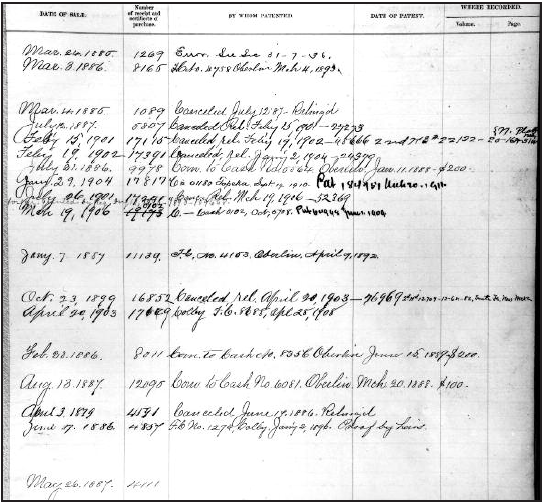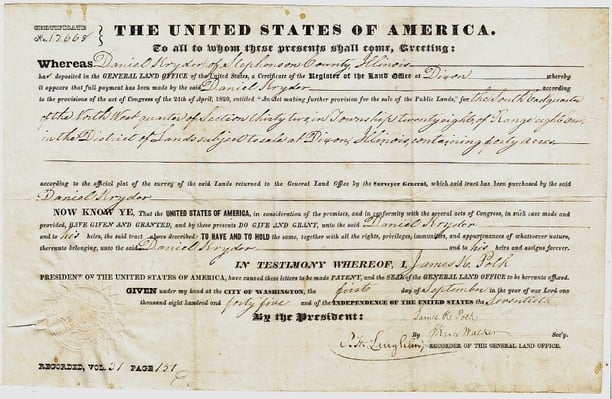New Energy Insights
- Home /
- New Energy Insights /
- Title Commitments: Why Do They Take So Long?
Real estate is a critical component in the world of medium-scale solar projects, more commonly known as community solar gardens (CSG) or solar farms. With such large amounts of money being invested in the solar arrays, learning after the fact that you do not have the proper rights to occupy the land on which your array sits can be financially ruinous. In addition to the extensive due diligence generally required for greenfield development such as environmental, geotechnical, topographical and wetlands studies, real estate diligence focuses on:
- Identification of uses and property rights affecting the lands such as crop or timber leases, severed or partially severed mineral rights (see below), hunting leases, farm and other easements, covenants, conditions and restrictions, and rights of first refusal.
- Confirmation of ownership and insurable legal descriptions for properties that have likely been held by the same families for generations.
Suffice it to say, there are many moving parts to organize and manage when it comes to choosing the land that will become home for your CSG site. A title commitment is the surest and safest way to confirm ownership of, the insurable legal description for, and liens and encumbrances against the land you’ve selected. But why do they sometimes take so long to obtain from an insurer?
A title commitment is a contract to issue a policy of title insurance to the party requesting it (an owner or a lender) upon satisfaction of certain requirements. The time period searched is generally between 20 to 40 years depending on a number of factors to determine what defines a “full search” in a particular jurisdiction, including:
- That state’s marketable title act or Marketable Record Title Act
(note: only about half of the 50 states have enacted a marketable title act; Maryland does not have a marketable title act) - The state bar association’s title standards
- Local custom; and/or
- Underwriting requirements for insuring title.
Your title examiner should not wholly rely on the marketable title act of any state, however, because there may be exemptions in the act that are not barred or extinguished by the passage of time. For example, in Ohio, mortgages are good for 21 years plus the life of the loan. That said, a 30-year mortgage taken out 50 years ago could still be valid there.
While they are helpful to start with, title searches are not limited to street addresses. Title examiners sift through property records using grantor and grantee indices, and properties are searched by name rather than legal description or street addresses. This type of search can be confusing and time-consuming. Divorce and probate records are searched, as are litigation, judgment, lien and bankruptcy records of the jurisdiction in which the property is located. These searches can often be done online, but the full detailed review of all records found must be performed for a title to be guaranteed and insurable.
Another common reason for a delayed title commitment is an additional request for a mineral search on the property. If ownership of the minerals (oil, gas, coal or other commodity minerals) has been legally severed from ownership of the surface, either by reservation by a former owner or transfer or sale to a third party, mineral (subsurface) interests are different from and dominant over the fee interest of an owner, and a title examiner has to separately trace the minerals back as far as possible, even as far back as the U.S. General Land Office, predecessor to the Bureau of Land Management, if records allow. Sometimes gaps in the records exist, requiring searches of other public records. This is a time-consuming and often expensive undertaking, involving archaic and hand-written documents.

Tract book illustration from General Land Office

An 1845 GLO land patent
Delays in receipt of a title commitment can also be caused simply by virtue of where a property is located. For example, a title search in rural Minnesota should take far less time than one for a property located in New York. This is due simply to the fact that the volume of records and the demand for title work in New York are logically more than that for a rural Minnesota tract of land.
Last, title commitments in recent months have been delayed because of COVID-19 related closings of county recorder’s offices and county courthouses. Courthouses are now generally open but not yet full-time and some are still by appointment only.
Title commitments are worth the investment and the time necessary to receive them. The best practice is to place your title commitment order as soon as possible during the due diligence process to identify and resolve any potential title issues or roadblocks to the development of your CSG.
References:
https://www.archives.gov/files/publications/ref-info-papers/rip114.pdf
http://www.sourceoftitle.com/default.aspx
https://www.virtualunderwriter.com/en/underwriting-manuals/2013-7/UM00000042.html
How Can New Energy Equity Help You Reach Your Solar Goals?
Stay up-to-date with New Energy Equity by joining our mailing list.

.png)
